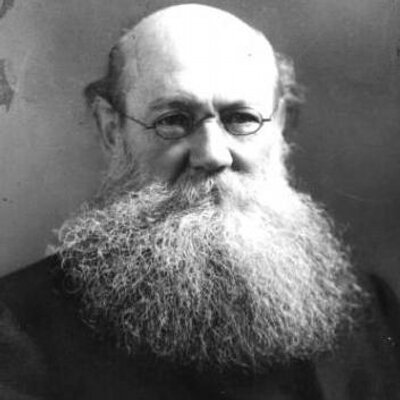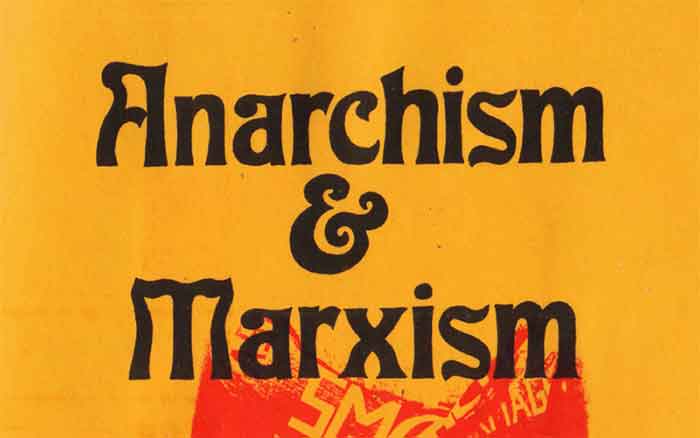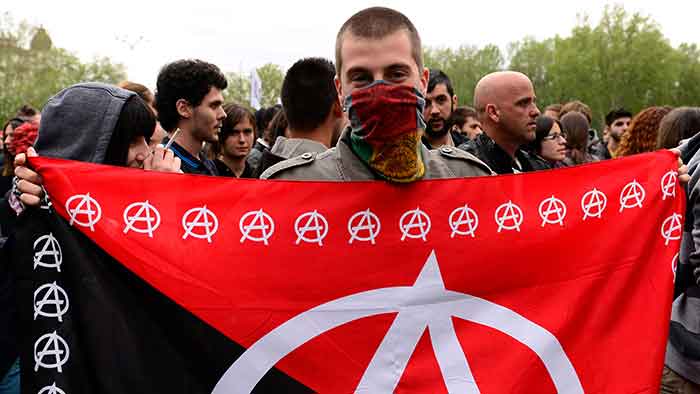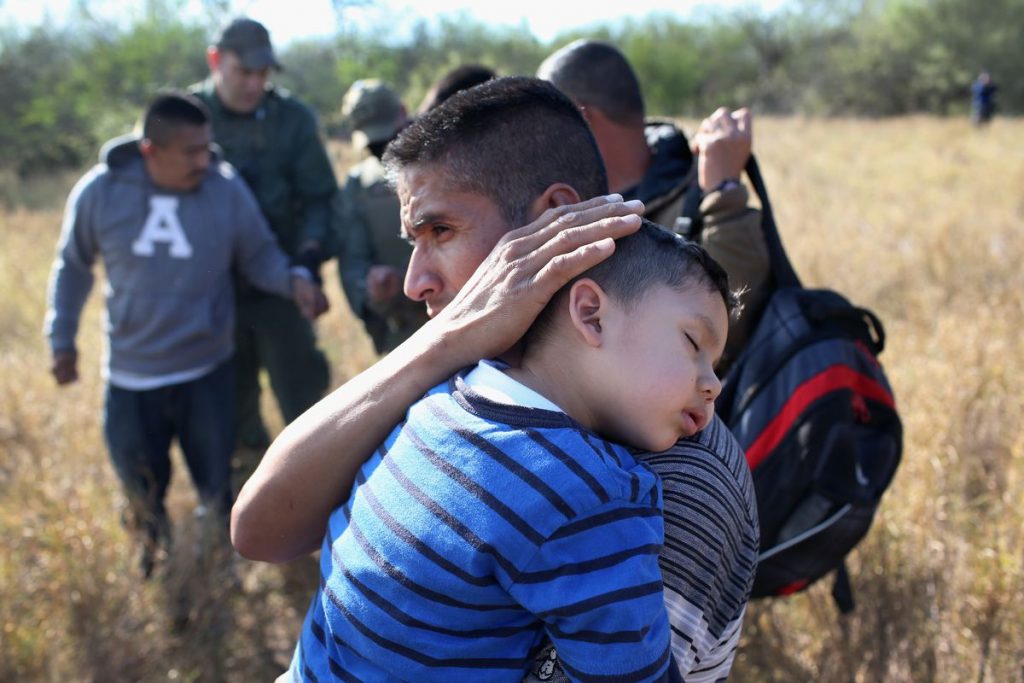
“The function of ethics is not even so much to insist upon the defects of man, and to reproach him with his ‘sins,’ as to act in the positive direction, by appealing to man’s best instincts.”[1] Those best instincts are the very ones that urge us to engage in acts of mutual-aid, justice, and self-sacrifice. Peter Kropotkin writes that nature is not indifferent; it reveals to us why we consider some actions and events as either bad or good. Nearly all societies consider to be good/right that which “is useful for the preservation of the race; and that which is considered evil is that which is hurtful for race preservation.”[2] It is important to stress here that what Kropotkin had in mind was the good of the entire society and not what is beneficial for one or a handful of individuals. Careful observation of nature leads to the discovery of underlying formulas responsible for the existence of all living organisms, and the components of the formula of a vigorous and prosperous life are equity and mutual sympathy. Kropotkin believed that this formula is no different than the principles of the movements of bodies in space. Life in a society built on the foundation of the just mentioned underlying schemata is the key to a successful development; it is essential because the public institutions that are created through collective effort, and for the benefit of all, help to further shape and refine our ethical values by improving our innate moral instincts and by sharpening our detectors of injustice.
For millions of years, these instincts had been developing and were passed on from one generation to the other because they were responsible for social cohesion, without which there would not be any victories in the never-ending struggle with the unpredictable and often ruthless nature. Identification with the individuals who make up our society is an inborn trait that helps foster solidarity and a peaceful and stimulating existence. Kropotkin argues and demonstrates by citing numerous observations and historical periods and events that only with a collective effort, the life necessities could be provided for all, which in turn would allow all members of a society to spend more time pursing their intellectual interests and inclinations. In other words, one cannot allocate time and resources to contemplating which meter patterns and rhymes ought to be used to write a poem about one’s beloved if one’s stomach is growling or if one’s body is shivering. Therefore, if resources are hoarded by a small percentage of individuals while the majority of the population is deprived of even the basic necessities, each of the three fundamental elements of morality (mutual-aid, justice/equity, self-sacrifice) are neglected and consequently an unjust and unhealthy society is born. Kropotkin asserted that if one “desires to have a life in which all his forces, physical, intellectual, and emotional, may find a full exercise, he must once and for ever abandon the idea that such a life is attainable on the path of disregard for others.”[3]
…
Russia of the second half of the nineteenth century, as opposed to many countries in Europe during that period, was not adversely affected by “those evils which afflict states with little land and a surplus population.”[4] Population of the entire empire in 1875 was around eighty two million people and the enormous continental plain was scarcely populated. This is vital to mention because it provides us with a succinct background of the setting in which Russian naturalists, who tackled the Darwinian theories, lived and worked. It also shows why Russian scientists, unlike their British colleagues, were not inclined to interpret their country’s poverty and conflicts through a Malthusian lens characterized by the overemphasis of two factors: the overpopulation pressures and competition brought about by the paucity of resources.
The social and political changes that took place in Russia in the 1860’s jumpstarted the interest in natural sciences. Young radicals were finally allowed to pursue fields of study which sparked their interest and satisfied their intellectual thirst. “Radical theorists such as D. I. Pisarev and N. G. Chernyshevskii hailed positive knowledge as a powerful weapon in the battle against the metaphysical obfuscations of tsarist ideology.”[5] When Darwin’s Origin of Species reached Russia in the mid-1860, the reaction of the Russian intellectuals was varied, but predominately positive. The book resonated with the preferences of the new urban intelligentsia, and even many of those who had objections to Darwin’s theories regarded them as scientific breakthroughs. There was, however, a point of common disagreement among the Russian naturalists and their English counterparts, who came from completely different disciplines, philosophical viewpoints as well as ideological backgrounds and perspectives. That one unifying objection was the Darwin-Malthus connection. Their own observations and studies, and the environment they lived in prevented them from agreeing with their British colleagues on the overwhelming importance the latter cluster bestowed on the factors of overpopulation and intraspecific competition.
Karl F. Kessler, an ichthyologist, argued that family ties and the drive to reproduce were the forces behind cooperation and was the first naturalist to use the term mutual aid. Moreover, Modest N. Bogdanov, a prominent ornithologist, believed that cooperation was necessary for a successful defense against predators and severe weather conditions. Vladimir M. Bekhterev, one of the leading figures in Russian neurophysiology and psychology of the late nineteenth century, wrote that intraspecific conflicts were rare and that the environmental circumstances were what organisms struggled against, and only rarely did they struggle against one another.[6] Peter Kropotkin belonged to this school of Russian evolutionary thought even though he wrote most of his articles on the topic while living in England. As has already been stated, Kropotkin was a renowned naturalist well before he became a prominent proponent of the anarchist communist cause. As a young man he had been a part of expeditions throughout eastern Siberia where he studied the Ice Age formations for the Imperial Russian Geographical Society, and later he became the secretary of mathematical and physical sciences, writing articles on orography and glaciations. Also, as we have just seen, theories incorporating mutual aid as a factor of evolution were well established in Russia, and many naturalists contributed to its development. In his articles and books Kropotkin explained that although he searched for signs of competition between the members of the same species during his expeditions in Siberia, his search was almost always fruitless. He witnessed separate species of animals struggle together against the cold or the strong and sudden winds, or against other species, but not against the members of their own. On the contrary, Kropotkin wrote that he witnessed many examples of cooperation among birds, deer, wolves, various species of rodents, etc. In the few cases where the intraspecific competition did exist, Kropotkin noted that those species were the ones that were closest to extinction.[7]
Solidarity and cooperation is what helped species survive and in one of his articles for the Le Revolte, Kropotkin audaciously connected this conclusion with his political ideology when he wrote: “Far from excusing exploitation…the investigations of Darwin and his successors comprise, on the contrary, an excellent argument to the effect that animal societies are best organized in the communist-anarchist manner.”[8] Kropotkin thus concluded that a human society which emulates the behavior of those species which are thriving would share the same faith. Kropotkin fortified his assertion with evidence coming not only from the animal kingdom, but also from customs observed in numerous African tribes and indigenous peoples of Siberia and Alaska, guilds in the medieval cities, and, as we are about to see, examples of freely chosen cooperative endeavors and agreements which occur in our daily lives. Kropotkin wanted these principles to become the foundation of a society, but in order for that to take place, authority, of any type, had to be eliminated.
“We may also take next, as granted, that in proportion as mutual aid becomes an established custom in a human community, and so to say instinctive, it leads to a parallel development of the sense of justice, with its necessary accompaniment of the sense of equity and equalitarian self-restraint.”[9]
In order to start moving in the right direction, to stimulate and maintain these lofty instincts, the institutions of a society ought to be changed. Throughout the evolution of societies, many had and continue to commit blunders. They build authoritative and hierarchical institutions which bring out the worst in men. During these periods of regression, the moral instincts are relaxed and weakened. Kropotkin believed that if this deterioration lasts for a longer period of time, there is a risk of a protracted moral and intellectual decay and even extinction. “If this group does not revert to the necessary conditions of survival and of progressive development of Mutual Aid, Justice, and Morality then the group, the race, or the species dies out and disappears.”[10] To prevent the complete destruction, members of a society must revolt and even resort to violence, if necessary, in order to dispose of the oppressive institutions, and after they have been demolished, structure a society in an anarchist communist fashion of federation and free associations and agreements.
The non-government system of socialism is what Kropotkin advocated as a replacement for all other political systems. He thought that people ought to take possession of the means of production as well as directly participate in the decision making processes, which would dictate the direction of the production and be tailored towards satisfying the needs of the population. Profit as the end goal of production was understood as primitive and unjust. Instead of a central authority serving its own interests by assuming the role of an unnecessary and forceful middleman, Kropotkin believed that individuals and organizations can freely form and freely cooperate in order to produce everything that was required for everyone to lead a respectable life. It is not the Emperor or the politicians sitting somewhere far away in cozy palaces and parliaments who know best how to organize the production and distribution of goods. The true experts are the farmers who till the soil and the miners who work in the pits. For those who are concerned about the lack of enthusiasm or laziness that might come about if the workers are left on their own, one only needs to point to the already existing meager wages, inhumane working conditions, and insecure job contracts which frequently leave the workers homeless and jobless whether or not they are carrying out their tasks with great skill and zeal. If they could become their own masters and if they could work in safer conditions knowing that their work depends on their decisions and actions, Kropotkin believed that the workers would be incomparably more inspired.
Anarchist communism, according to Kropotkin, was a synthesis of the two predominant trends of the nineteenth century: emancipation of man from capitalist exploitation as well as man’s emancipation from the constraints imposed by any form of government/authority. He argued that all governments misuse their power to allocate resources to those who offer the most capital in return, and not to the people that need those resources to survive. The heads of industries and landowners follow the same logic. Results that have been obtained by countless hours of labor by many generations of laborers end up in the hands of few who obtained their high ranking posts through corruption, while those who worked to produce the wealth are left degraded and destitute. Countless tons of coal belonged to those who never held a single bit of it in their hands; countless miles of railroads were owned by those who never even travelled any of it; countless mansions were in the possession of one family while thousands were freezing on the streets. And if those who worked and created all of this wealth dared to utter a complaint or to reclaim enough for the mere survival of their families, authorities sent policemen to beat and jail them. “Who is the sophist who will dare to say that such a system is just? But what is unjust cannot be beneficial to mankind; and it is not.”[11] Kropotkin argued that such a system had to be abolished, and since the privileged class would never let go of its possessions on their own, they ought to be repossessed by the people for everyone’s benefit.
In a capitalist system of production, the needs of the community are neglected for the sake of obtaining profit for the capitalist. Such a system is synonymous with recurrent, unpredictable fluctuations in the market, expulsion of workers when the demand slows down, relocation of the production to new countries and a perpetual search for new markets and labor that can be exploited without a risk of a backlash. In the new places one set of capitalists encounter other moguls from different parts of the world trying to obtain a piece of the same market and same labor force for themselves. Deceptive schemes are developed, contracts are broken, conflicts and even wars follow. “Whole generations are slaughtered from time to time; and we spend in armaments the third of the revenue of our States—revenue raised, the poor know with what difficulties.”[12] This quote concisely characterizes the major conflicts we continue to have to this day. Kropotkin spent four decades of his life castigating the injustice and hypocrisy of such a system. In one place he writes that a “society cannot live under such a morality. It cannot last so: it must, it will, be changed.”[13]
Free from the needless bondage imposed by the authorities, be they economic or religious or political or military, individuals will be free to organize and pursue the aims they share. Freely chosen agreements between various entities will replace laws. In his works on morality, Kropotkin refuted and ridiculed the idea of the social contract, which was contrived by the English philosopher Thomas Hobbs, by pointing out the absurdity of the thought that our prehistoric ancestors gathered together from separate places and after living secluded lives consciously agreed to a life in a society. Kropotkin affirmed that human beings are social by nature and that our own social habits and needs naturally prompt us to sympathize and cooperate with one another. As an example of a collaborative effort on a massive scale, Kropotkin chose the railway net of Europe; countless lines of railway independently built, operated, and federated together, “without even so much as a Central Board of European Railway.”[14] Furthermore, he writes that the Meteorological and Geological Societies of Europe by their own initiative, and not because they were forced by their governments, congregated to develop a standardized coloration of geological maps.[15] The numerous freely formed associations of ship and boat owners were organizing shipping trade on their own, the syndicates of France and countless other manufacturers formed associations and forged agreements in order to accomplish their pursuits, not because someone order them but because that was the kind of work out of which they derived contentment. Moreover, Kropotkin explains that while aggression and wars continued to be the consequences of the decisions made by the State, taking care of the wounded became the task of the Red Cross Society, another freely formed organization.[16] Societies for the purpose of studying a particular branch of knowledge or even for the purpose of sharing thoughts on personal hobbies came to existence through the initiative and organization by the people and for the people. “Every day new societies are formed, while every year the old ones aggregate together into larger units, federate across the national frontiers, and cooperate in some common work.”[17]
The outlook that human beings are controlled by their unconscious selfish desires, which must be kept in check by the authorities in order to prevent chaos, becomes a self-fulfilling prophecy when the living conditions of the majority of the population are characterized by the persistent threat of abject poverty. In such manufactured difficult circumstances, which could be easily altered if those who possess the wealth and authority were willing to abide by the principle of economic equity, people are inevitably going to be driven to steal and even murder in order to survive. In a system overflowing with all kinds of exploitation, individuals in a society are not provided with any palpable examples of those virtues which the priest or the emperor is asking them to accept. Moral behavior can become a prevalent characteristic of a society only if all of its members abide by the same principles, and if all citizens worked for the welfare of each and every member of their society and not for the purpose of ensuring a luxurious life for a minority.
Kropotkin wished to build a society whose institutions would stimulate the best instincts of human nature. His examinations of nature lead him to the conclusion that a society constructed in an anarchist communist manner is the best imitation of the most robust animal species. But this was not to be a contrived society that had to be held together through artificial means. Kropotkin was convinced that the human nature longed for it, and that it was best suited for this particular social order. He studied the historical trends and the evolution of societies and noticed that all of them moved towards the attainment of two goals: integrated labor and equality and fullest freedom of each individual to pursue his/her intellectual interests.
Societies like the Imperial Russia or the capitalist Britain continually repressed the human inclination towards free organization and individual liberty. Such systems, Kropotkin believed, were responsible for the physical and psychological destruction of their populace. The rulers of these societies fostered a belief that if left to themselves, men would tear each other apart, and, consequently, this is how the authorities treated their citizens. Kropotkin wrote that “if everyone treated his fellow as an enemy, against whom every means of warfare is justifiable—no society could exist.”[18]He believed that another direction ought to be followed for the sake of realizing the human potential to the fullest extent. All members of a society deserved to have their basic needs fulfilled so that they, too, can participate in the highest joys of life, so that they, too, can educate themselves, pursue music, art, and science. In order for such a society to be built, the old order had to be overthrown through a revolution. This is the main reason why Kropotkin was not overly critical of those revolutionaries who acted on their own and used violent means against those who, according to him, oppressed the whole society. Kropotkin believed that they were driven by their moral instincts and were acting in the same manner the sparrows act when they peck and chase away a fellow of their own species who steals branches from neighbors’ nests instead of doing the work herself, or the way ants attack a fellow ant who is unwilling to share the food it obtained with the rest of the colony.
Milan Djurasovic is a Bosnian American collage artist, blogger, and a book author. He currently lives and works in St. Petersburg, Russia. His educational background is in psychology and history. He can be reached via Face Book https://www.facebook.com/milan.djurasovic
[1] Peter Kropotkin, Ethics: Origin and Development, pp. 23-24.
[2] Pater Kropotkin, Anarchist Morality, pp. 91.
[3] Peter Kropotkin, Ethics: Origin and Development, pp. 24
[4] P. Belov, Uchebnik geografii Rossiiskoi Imperii cited by Daniel P. Todes in Darwin Without Malthus, pp. 21.
[5]Daniel P. Todes, Darwin without Malthus, pp. 22.
[6] Daniel P. Todes, Darwin without Malthus, pp. 104-120.
[7] Peter Kropotkin, Mutual Aid: A Factor of Evolution, pp. 1-5.
[8] Kropotkin quoted by Daniel P. Todes in Darwin without Malthus, pp. 130-131.
[9] Peter Kropotkin, Ethics: Origin and Development, pp. 26.
[10] Ibid., pp. 27.
[11] Peter Kropotkin, Anarchist Communism: Its Basis and Principles (Mineola, New York: Dover Publications, Inc., 2002), pp. 54-55.
[12] Ibid., pp. 56.
[13] Ibid.
[14] Ibid., pp. 65.
[15] Ibid., pp. 68.
[16] Ibid., pp. 67.
[17] Ibid., pp. 66.
[18] Ibid., pp.73.















































